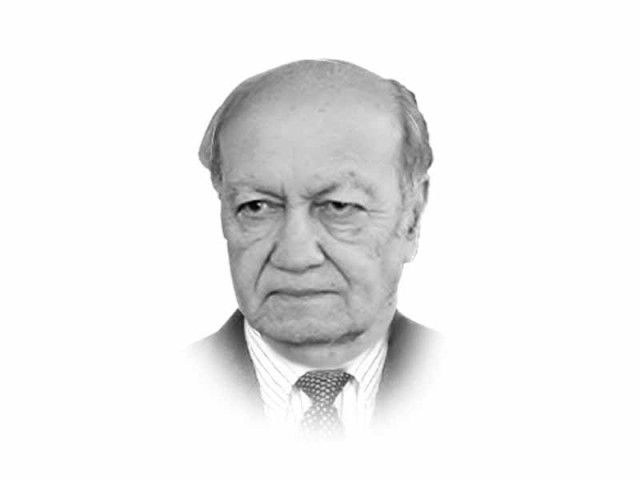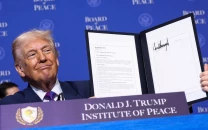Volatility in the Middle East
Will US once again get bogged down in another Middle East quagmire that does not require merely a military response.

But new and potent threats have emerged in the Middle East, foremost being a group that identifies itself as Islamic State (IS). This new group has pushed al Qaeda to a secondary position and according to The New York Times, “now rivals al Qaeda as the world’s most powerful jihadist group”. President Obama has described IS as having a “combination of terrorist and conventional capability”. And that IS not only is a threat to Iraq and Syria but also to rest of the region and the US. The IS has occupied large areas of Iraq and Syria in the heart of strategically important Middle East. They have occupied Mosul and are active in Anbar province, Tikrit and Sinjar and had it not been for the valiant struggle of its residents and air support from the US, Amerli too would have fallen. The IS has among its ranks a large number of militants holding Western nationality. It is surprising that the US and the West, despite their armada of intelligence agencies spread globally, took that long to identify the IS until its numerical strength had reached in thousands and was threatening the integrity of Iraq, Syria and beyond.
The vulnerability of Iraq and Syria to these groups could be attributed to several factors. Americans, after the fall of Saddam Hussein, blundered in disbanding the Iraqi army fearing that it was heavily oriented towards the ruling Ba’ath Party. Besides, former prime minister al-Maliki’s exclusionist policy of relying on Shias, alienated the Sunnis who constitute close to 38 per cent of the population and have been in power during Saddam’s rule. They sided with the IS and remained oblivious to the reality that this policy goes against their long-term interest.
Similarly, in Syria, the barbaric killing of thousands of Sunnis and other sects by Bashar al Assad has seriously alienated them and created a fertile ground for the IS to capture large areas of Syrian territory. Although, their own brutal and barbaric treatment of Shias and other minorities is equally despicable, the IS shrewdly add to their strength by closely associating with local militias that are opposed to the government.
Understandably, rise of the IS has generated enormous concern in the Western and Muslim world with analyst giving different interpretations to this phenomenon. One fairly predominant view is that borders drawn after World War I by colonial powers were artificial and now natural affinities based on ethnicity and religion are coming into play. The invasion of Iraq by the US and allied forces, coupled with the proxy wars being conducted by regional players like Saudi Arabia and Iran, has acted as a catalyst in unleashing these forces. Another line of argument is that in these countries, we are witnessing rejection of the modern state and ascendancy of religious dogma where transcended cause will determine contours of the state and extent of modernisation.
Powerful voices are being raised in the US putting pressure on President Obama to intervene and take military action. Initially, Obama was honest enough to admit that he has yet to formulate a policy. His remarks reflect the complex nature of security threat from IS and war weariness on the part of the US after its prolonged involvement in Afghanistan and Iraq. Will the US once again get bogged down in another Middle East quagmire that does not require merely a military response but an elaborate and comprehensive strategy in which the use of force should be only a part of it? That strategy should come from within the leadership of the affected countries and not from Washington. America and Europe, at best, can help these countries with weapons, equipment and know-how but can never build the capability to counter this menace.
These uprisings and the mushrooming of militant entities should be a clarion call for the clear rejection of authoritarian structures and an urge for reform and new political order in the Middle East. The civil strife also indicates that unless the authoritarian rulers of Middle Eastern (and Muslim) countries do not move towards political legitimacy, they can never achieve popular will. This, of course, has to be combined with the ability of governments to govern and address people’s genuine problems. Leadership within their countries has to stand up to the challenge. Failure to grasp the situation on the part of rulers despite these clear signs will further destabilise the region. Dependence on internal security apparatus and support from West or regional powers can only provide temporary respite and a modicum of stability but not prevent the inevitable upheaval. Already we find the revival of old fault lines based on sectarian, ethnic and tribal divisions. The volatility of the region is not confined to these two countries but has spread to Libya and other countries of North Africa. Lately, there were rumours and graffiti on walls in Khyber-Pakhtunkhwa — the IS announcing its presence in Pakistan. Al Qaeda, not to be left behind, announced the formation of its South Asian wing. There may be no credibility in these claims and it may be mere propaganda to influence us psychologically, but for Pakistan and other Muslim countries, the potential of such organisations raising their heads is omnipresent.
Regional powers — Egypt, Saudi Arabia, Iran, Turkey and Israel instead of cooperating, are competing for influence, further aggravating the volatile situation. Interestingly, most of these power brokers are themselves internally vulnerable and prudence demands should stay away from fuelling the conflicts merely to serve short-term gains. Regrettably, with generally poor leadership in most Muslim countries and gross foreign interference implementation of any broad-based cooperative approach appears a distant possibility.
Published in The Express Tribune, September 10th, 2014.
Like Opinion & Editorial on Facebook, follow @ETOpEd on Twitter to receive all updates on all our daily pieces.



















COMMENTS
Comments are moderated and generally will be posted if they are on-topic and not abusive.
For more information, please see our Comments FAQ